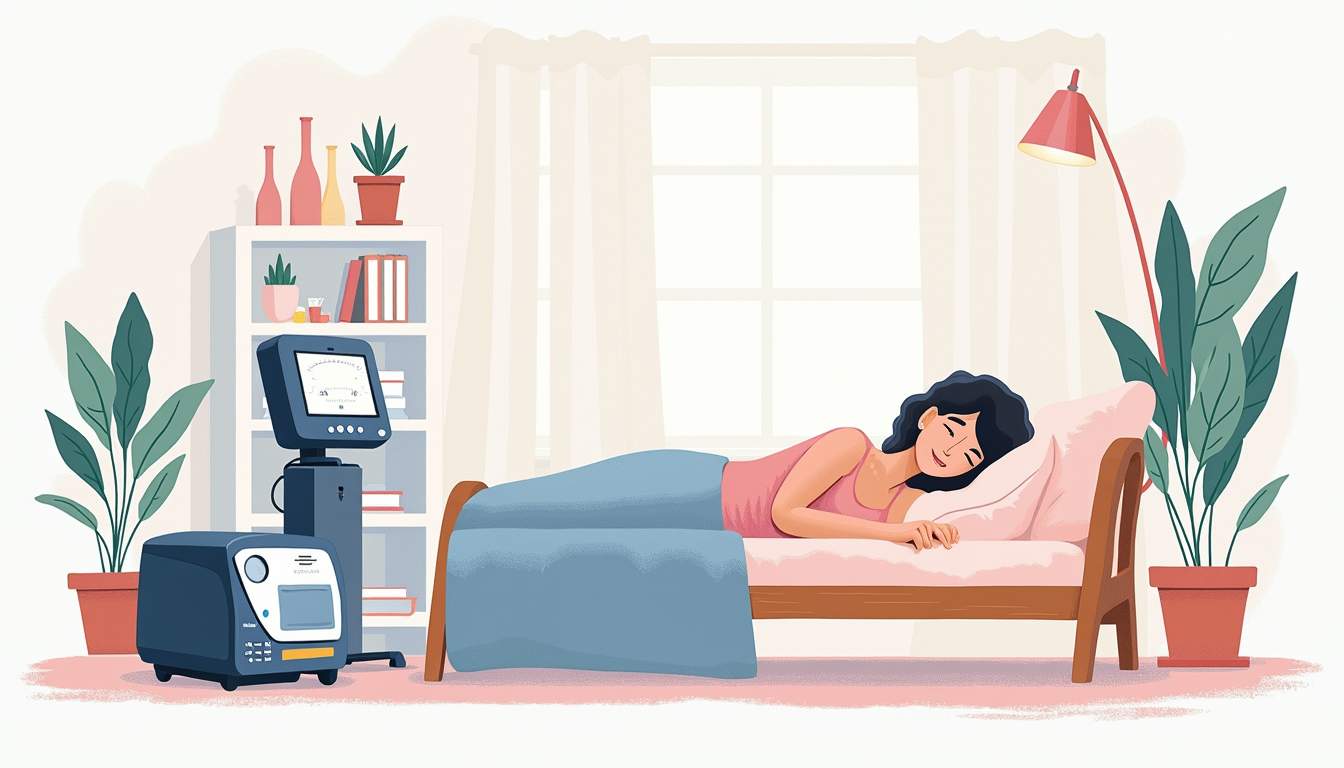Affordable Sleep Apnea Testing in Adelaide: What Are Your Options?
Sleep apnea is a serious sleep disorder that affects millions of people around the globe. In Australia, especially in cities like Adelaide, the awareness around this condition has grown tremendously in recent years. With rising health concerns associated with sleep apnea, affordable testing options have become crucial for many individuals seeking diagnosis and treatment.
Understanding Sleep Apnea
Sleep apnea is characterized by repeated interruptions in breathing during sleep. These interruptions can last from a few seconds to minutes, leading to fragmented sleep and reduced oxygen levels in the body. The condition can significantly impact overall health and quality of life, making it crucial to understand its implications and seek appropriate treatment.
In conclusion, exploring affordable sleep apnea test Adelaide is a vital step toward gaining a better understanding of your sleep health. With both public and private resources available, individuals have access to essential services to diagnose and manage sleep apnea effectively.
What is Sleep Apnea?
Broadly, sleep apnea falls into three categories: obstructive sleep apnea (OSA), central sleep apnea (CSA), and complex sleep apnea syndrome. OSA, the most common type, occurs when the muscles in the throat relax excessively, causing a blockage of the airway. This blockage can be exacerbated by factors such as obesity, anatomical variations, or even the position in which a person sleeps, often leading to a cycle of disrupted sleep and daytime fatigue.
CSA, on the other hand, happens when the brain fails to send proper signals to the muscles that control breathing. This type is less common and is often associated with underlying medical conditions, such as heart failure or stroke. Complex sleep apnea syndrome encompasses symptoms of both obstructive and central sleep apnea, complicating diagnosis and treatment. Understanding these distinctions is vital for effective management and intervention.

Symptoms and Risks of Sleep Apnea
Common symptoms of sleep apnea include loud snoring, episodes of breathing cessation during sleep, abrupt awakenings accompanied by shortness of breath, and excessive daytime sleepiness. Many people may also experience headaches in the morning, difficulty concentrating, and mood changes. These symptoms can severely affect daily functioning, leading to decreased productivity and increased irritability, which can strain personal and professional relationships.
Untreated sleep apnea can lead to serious health consequences such as cardiovascular problems, high blood pressure, diabetes, and even stroke. The lack of restorative sleep can also contribute to metabolic issues, making weight management more challenging. Recognizing the risk factors, including obesity, age, and family history, is essential for early intervention. Additionally, lifestyle modifications such as weight loss, regular exercise, and avoiding alcohol and sedatives can significantly improve symptoms and overall health outcomes. Awareness and education about sleep apnea are crucial for encouraging individuals to seek medical advice and treatment options, which may include CPAP therapy, oral appliances, or surgical interventions tailored to their specific needs.
The Importance of Sleep Apnea Testing
Testing for sleep apnea is a critical step toward effective management and treatment. By diagnosing the condition, healthcare providers can recommend appropriate therapies to mitigate symptoms and improve the quality of life.
Early Detection and Its Benefits
Early detection of sleep apnea significantly enhances treatment outcomes. It can lead to timely interventions that prevent further health complications associated with prolonged untreated sleep apnea. Moreover, understanding one’s sleep patterns and disturbances can foster healthier lifestyle choices.
Patients diagnosed early are more likely to receive suitable treatments such as CPAP therapy or lifestyle changes that can make a marked difference in their overall health and well-being. In addition, early intervention often results in better sleep quality, which can improve mood, cognitive function, and overall productivity during waking hours. Individuals who prioritize their sleep health may also experience a reduction in anxiety and depression symptoms, contributing to a more balanced emotional state. Read more about cognitive on https://www.wgu.edu/blog/what-is-cognitive-learning2003.html
Potential Consequences of Untreated Sleep Apnea
Living with untreated sleep apnea can have dire consequences. Patients may find themselves battling chronic fatigue, which can impair their job performance or even lead to dangerous situations like falling asleep while driving.
Moreover, untreated sleep apnea can exacerbate or lead to serious health conditions, including heart disease, Alzheimer’s disease, and metabolic dysfunction. Understanding the risks can motivate individuals to seek appropriate testing. Additionally, the social implications of untreated sleep apnea can be profound; relationships may suffer due to irritability and mood swings associated with poor sleep. The impact on personal and professional life can be significant, as chronic sleep deprivation often leads to decreased productivity and an increased risk of accidents, further emphasizing the necessity of timely diagnosis and intervention.
Different Types of Sleep Apnea Tests
When it comes to testing for sleep apnea, there are two main types: home sleep tests and in-lab sleep studies. Each method has its unique advantages that cater to different patient needs.
Home Sleep Tests
Home sleep tests (HST) offer convenience for patients who prefer to sleep in their own beds. These tests usually involve taking a few simple measurements using portable devices that monitor breathing patterns, oxygen levels, and heart rate.
A home sleep test may be a suitable option for those with a high likelihood of OSA, as assessed by a healthcare provider. Patients can experience a less invasive and more comfortable testing experience. Moreover, the ability to sleep in a familiar environment can lead to more natural sleep patterns, which may yield more accurate results. Many modern devices are user-friendly, often equipped with clear instructions and support, making it easier for patients to set up and use the equipment without feeling overwhelmed.
In-Lab Sleep Tests
Alternatively, in-lab sleep tests are conducted in a clinical setting where various parameters are observed under professional supervision. This comprehensive method provides a detailed analysis of sleep patterns, enabling doctors to observe behaviors like eye movements and muscle activity.
In-lab tests are typically recommended when a precise diagnosis is needed or when other medical conditions could affect sleep quality. They can give a clearer picture for complex cases that need thorough investigation. During an in-lab study, patients are monitored overnight with advanced equipment that tracks brain waves, heart rhythms, and respiratory events. This extensive data collection allows sleep specialists to differentiate between various types of sleep disorders, ensuring that patients receive the most accurate diagnosis possible. Additionally, the presence of trained professionals can provide immediate assistance if any issues arise during the test, further enhancing patient safety and comfort.
Affordable Sleep Apnea Testing Options in Adelaide
In Adelaide, several avenues offer affordable sleep apnea testing options, from public health services to private clinics, making it easier for individuals to seek evaluation without incurring excessive costs.

Public Health Services for Sleep Apnea Testing
The South Australian public health system provides sleep studies through hospitals and specialized clinics. These services typically offer subsidized rates or bulk billing options for eligible patients.
Patients can access these services through a referral from their general practitioner, ensuring that those in financial need can receive essential testing without prohibitive expenses. Additionally, many public health facilities are equipped with the latest technology and staffed by experienced professionals who are dedicated to diagnosing and treating sleep disorders. This commitment to quality care means that patients can expect thorough evaluations and comprehensive follow-up support, which are crucial for effective management of sleep apnea. Click here to learn more about technology.
Private Clinics Offering Affordable Tests
In addition to public services, several private clinics in Adelaide provide competitive pricing for sleep apnea testing. These clinics often have shorter waiting times and can offer flexible scheduling options.
Many private providers strive to keep their costs down while maintaining a high standard of care, ensuring that patients can access the necessary testing and follow up with effective treatment plans. It’s advisable for patients to contact clinics in advance to discuss insurance options and payment plans that may ease financial burdens. Furthermore, some clinics offer home sleep apnea testing kits, allowing patients to conduct their assessments in the comfort of their own homes. This not only enhances convenience but also provides a more natural sleeping environment, potentially leading to more accurate results. With the rise of telehealth services, many clinics are also incorporating virtual consultations, making it easier than ever for patients to receive expert advice and support throughout their diagnostic journey.
Preparing for a Sleep Apnea Test
Once you’ve scheduled your sleep apnea test, it’s normal to feel a mix of anxiety and anticipation. Knowing what to expect can help mitigate any apprehensions.
What to Expect During the Test
During a home sleep test, patients will typically wear monitoring devices that record their sleep patterns while they rest overnight. It is crucial to follow instructions carefully to obtain accurate results.
For an in-lab test, patients will sleep in a comfortable hospital bed while technicians monitor them throughout the night. Patients may be attached to electrodes that measure brain activity, breathing patterns, and other essential metrics.
Tips for a Successful Sleep Study
To ensure a successful sleep study, consider the following tips:
- Stick to your regular sleep schedule prior to the test.
- Avoid caffeine and heavy meals in the hours leading up to bedtime.
- Bring comfortable pajamas and any necessary sleep aids.
- Communicate any concerns or questions with your healthcare provider or the sleep technician.
By preparing adequately and adhering to best practices, you can enhance the chances of a productive and insightful sleep study experience.
